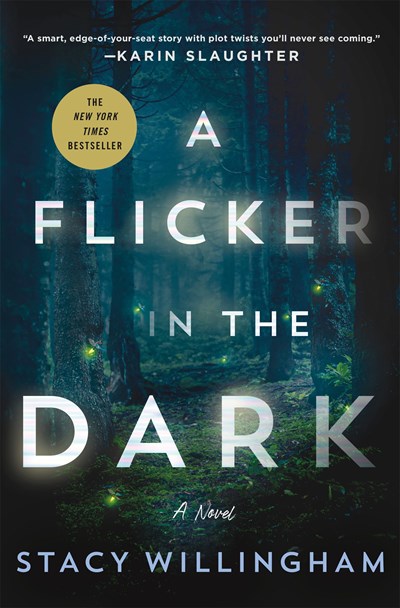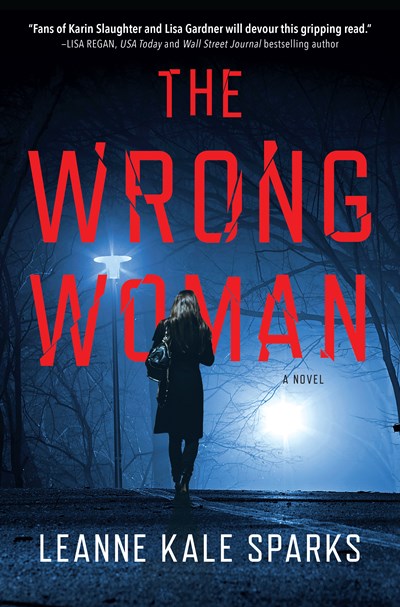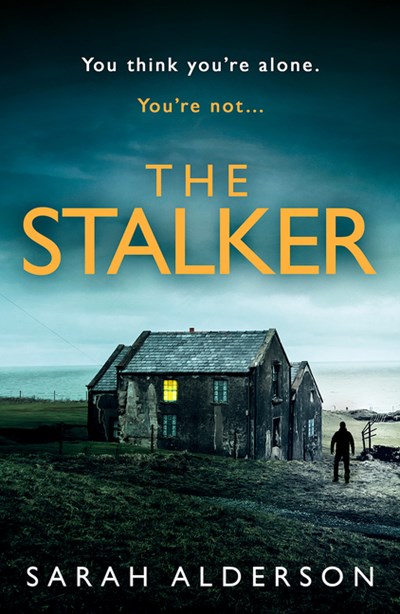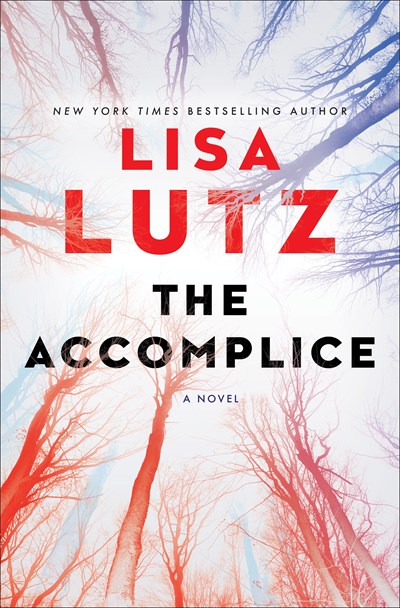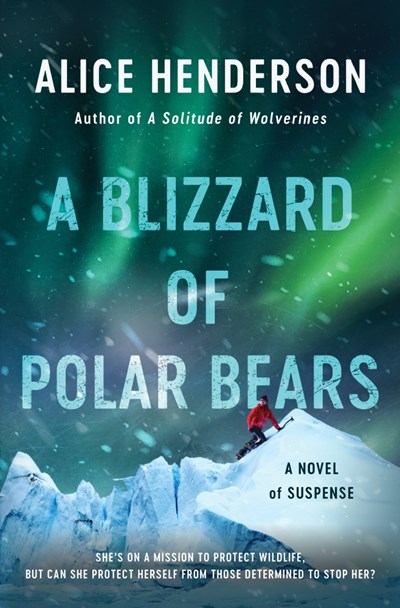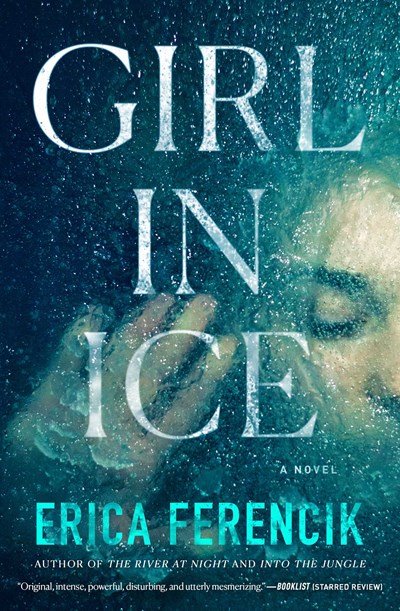A brilliant debut, as well written as it is well-conceived. No one should have 12-year-old Chloe Davis’s childhood. In the course of one summer in her small Louisiana town, six teen girls go missing. As terrifying as that is, it gets worse: the murderer, it turns out, is her father, who is promptly tried and sent to prison. Two decades later, Chloe is an adolescent psychologist in Baton Rouge, living with Daniel, her handsome and loving fiancé. The horror of the past seems to be behind her, happiness is in her grasp, when a teen girl goes missing. And then another. These are no random killings. They bear an uncanny resemblance to the murders of 20 years ago, and it turns out that both girls have a connection to Chloe—in fact, one is her patient. Willingham’s genius is the ability to keep so many balls in the air. From Chloe’s intense relationships with Daniel, her brother Cooper, her institutionalized Mom, a New York Times reporter, to ricocheting between the past and the present yet still keeping the narrative moving briskly ahead, this book is so much more than your typical serial-killer novel. Fans of Karin Slaughter, Harlan Coben and Gillian Flynn will love this novel, which has been optioned by actress Emma Stone for a limited series.
Suspense
This book could just as well be titled The Wrong Man, as it’s a master class in how the police can trudge through the investigation of numerous other suspects before finding the right one. The book stars a dogged FBI agent, Kendall Beck, who reports her car stolen when she can’t get the Denver police to take seriously the disappearance of her roommate, Gwen, who borrowed the car. Professional courtesy means that Kendall is allowed inside details as the hunt for Gwen gathers steam. At the same time, she’s investigating a case of her own: a missing little girl, whose neighbor seems odd and too friendly. Given that a stolen car doesn’t seem like it will take much work, the Denver detective who’s looking for Gwen also has another case of his own, that of a woman who may be the victim of a serial killer who’s been working the area for years. Friendships, love, and the grief when those connections end add a personal touch to the legal and police procedural details shared by Sparks, who formerly had a law career. For fans of Tana French and other authors who shine a light on relationships in policing.
nitially, this novel seems weighed down by clichés: the weak, timid wife; the macho, type-A husband; the island rumored to be haunted. But keep going and you will be rewarded with a top-rate thriller which is nothing as it seems. Liam and Laura chose to spend their honeymoon on a remote Scottish island, empty except for the two of them. Their lovely cottage is stuffed with a week’s worth of fine foods and wine, and all they plan to do is explore the island’s ancient burial sites and ruined castle. Until things start to get weird—is someone in the bushes watching them?—and they wake to find a message scratched into the window. Clearly they aren’t alone, and their one way of contact with the mainland, a satellite phone, is missing its charger. Then the electricity goes out. From there, it’s clear that their stalker isn’t playing trick or treat, he’s out to murder them. You would expect this book to end with a face-off between the newlyweds and the villain, but a 180-degree twist ends up rewriting the whole book, leaving readers absolutely stunned.
Suspense fiction for those who enjoy character-driven stories, plenty of dialogue, and simple, straightforward prose. Single parent Kate is awoken by noise in her backyard, but it’s just deer. Then she sees some teens running from the cottage at the end of her property. Days later she starts getting anonymous texts—which are vaguely threatening—then a window is smashed and a knife is found embedded in the cottage’s wall. This would be enough to set anyone on edge, but Kate is especially vulnerable; she survived a home invasion two years ago in which her husband, a cop, was murdered. Fortunately, the former police chief is her father-in-law, and her sister —they’ve been estranged for 20-plus years—agrees to move in and help raise Kate’s two kids. As the terror slowly escalates, and the list of potential suspects grows, Kate has to go deeper into her past to understand who wants to kill her today.
Poor Jan. In her late twenties, she’s lost both her job and her boyfriend at the same time. Pretty much directionless, she rents a remote cottage on the edge of a forest and settles down to start that novel she’s always wanted to write, and to try to sort out her future. All would be wonderful were it not for the tapping on the windows every night, the dog barking at something—or someone?—in the garden, and the continual feeling that she is being observed. Cut away to Ian and Emma, a young couple in the area, who have lost a second child to stillbirth, with both babies born deformed. Although they decide to no longer seek having children biologically, Ian becomes obsessed with trying to understand the cause of their misfortunes. These two narratives really crank up the suspense as Jan seeks to discover the nature of her nocturnal visitors while Ian slowly uncovers disturbing facts about his and Emma’s parentages. Eventually the two story lines converge, making for a super creepy, but satisfying, ending. Kudos to Stone for a thriller that relies on neither violence nor murder and manages to treat a medical condition with compassion, not exploitation. Reading groups will enjoy discussing the many moral dilemmas the novel presents.
Everyone has secrets. But in The Accomplice, even the secrets have secrets. Luna and Owen, who meet in college, aren’t lovers. They’re BFFs, despite their many differences. Owen is handsome, preppy, and privileged. Luna is overly honest and direct, but when it comes to her life, quite mysterious. Owen in a way adopts Luna, who ends up spending her holidays with Owen’s mad, drunken family—and eventually seduces Owen’s older brother. When Owen’s ex-girlfriend dies—suicide, murder, or accident?—the campus turns on him. All except for Luna. And when, fifteen years later, Owen’s wife is violently murdered—yes, he and Luna live in the same town—again Luna takes Owen’s side. Or does she? Because Luna has her own secrets she needs to protect. This is crime fiction in which conversation far outweighs the action, but that’s O.K. You’ll never regret the time you spend with this dysfunctional group of frenemies.
Alex Carter is just winding down a research project in Montana—she’s a wildlife biologist—when a fellow scientist calls to see if she would like to lead a study of polar bears. Within weeks she’s at a scientific research center in Churchill, Manitoba, polar bear capital of the world. Accompanied by a research assistant and a pilot, Carter flies over the frozen terrain of Hudson Bay in a helicopter, seeking bears. When she locates one, she shoots it with a tranquilizer from the helicopter then descends to quickly tag it and take samples. Henderson does a terrific job in describing life in Churchill, especially the effort to survive in such a hostile environment, but even more compelling is the information about the polar bears, struggling to live despite climate change, loss of prey, and increased exposure to toxins. Slowly Alex’s study is undermined—someone breaks into the lab and steals her samples, her supplies are tampered with, her pilot disappears—until on one mission the plane itself sets on fire, leaving Alex and her team stranded on the ice, miles from anywhere. Henderson manages to marry both suspense and mystery in this book, featuring a classic, suspense-driven fight-and-flight with several overarching mysteries. It’s even better than the excellent first book in the series, A Solitude of Wolverines. Fans of Nevada Barr’s Anna Pigeon novels may well enjoy this.
Val Chesterfield, a scholar of ancient Nordic languages, lives a sheltered life. Suffering from depression and anxiety, she relies on medicine, and the occasional drink, to get through the day. The apparent suicide of her twin brother, Andy, a climate scientist conducting research on an island off the coast of Greenland, leaves her bereft and suspicious. But then Wyatt, one of her brother’s research colleagues, calls with the unbelievable news that they have discovered a girl frozen in ice, likely for hundreds of years, who has thawed out and is now alive. Would Val come to Greenland and try to communicate with her? Despite her phobias, Val agrees, as much to learn about Andy’s death as to meet the girl. Sigrid, as the girl comes to be called, is a medical anomaly; humans can’t survive being frozen. Typically, this is the point when I would put the book down and walk away. But Ferencik does such a stellar job of selling us on Sigrid, creating a relationship between the girl and Val, and depicting the growth of language between the two that I read on, riveted. All is not well on their little island, it turns out. Wyatt acts more like a cult leader than a scientist, two other researchers meet unanticipated challenges, and Val realizes that Sigrid is sick, possibly dying—and it’s up to Val to figure out how to save her. Ruth Ware fans will appreciate both the tension and the claustrophobia.—Brian Kenney
When struggling artist Kelly enters an art gallery bathroom on her birthday, she turns into a different version of herself. In this life she’s no longer single, but is married to Eric, who is waiting outside for her. Her tattoos have vanished, and she never went to art school. Bewildered as to which existence is real, she plays along. Memories from this life’s past suddenly appear, along with a returning, comfortable attraction toward Eric, who, in the other life, she turned down when he asked her out in high school. Over time, odd moments tell Kelly that the new life might be no more stable than the old—her tattoos flash back onto her skin at times, for example—and she discovers that some in her new life might know what’s going on. A stellar choice for book groups and classes on ethics, this debut brings up a wealth of questions about possibilities other than the linear progression of life that we take for granted, and about the wisdom of trying to start over. Kelly and Eric’s insta-relationship is a mind-bender of its own, the does-he-know and does-he-know-that-I-knows perhaps reminding readers of the mysteries in any partnership. Sure to be a hot title this fall.
Defense lawyer Raquel Rematti, whose arguments are used as law school how-tos, has met the first client she truly hates, Angela Baldesteri, a former First Lady and current senator. Angela might be lying on the stand in her trial on fraud and tax evasion charges and seems determined to alienate the judge. Raquel is torn. She could lose her license if she fails to rein in Angela’s behavior, but it’s hard to find a more high-profile client. Meanwhile, outside forces frighten her into staying: she’s followed in the street by men who claim to be FBI but aren’t; a former drug-dealing client targets a member of the jury and even the lawyer’s loved ones; and the body count starts to climb. Batista (Manhattan Lockdown) skillfully intertwines psychological and legal drama here, with the protagonist struggling to best an adversarial client while fighting against those who will do anything to keep the senator in the upcoming presidential race. The cutthroat politics and shadowy money behind super PACs also feature heavily. Trial lawyer Batista’s fast-paced read is a must for fans of John Grisham and Scott Turow.

